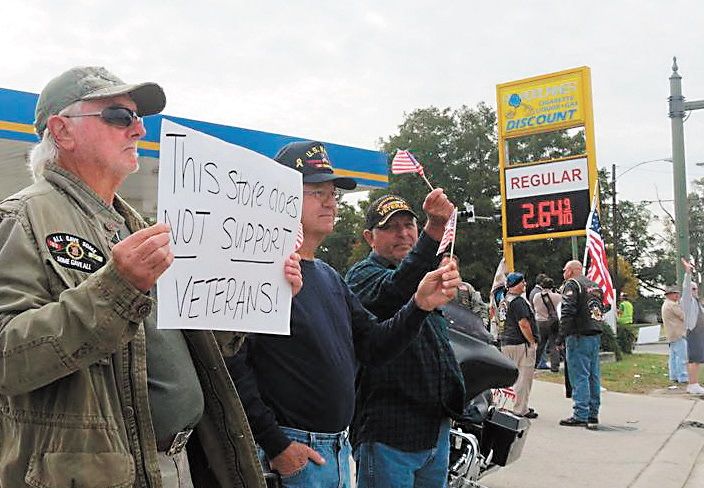I believe in Tim Rebowe
September 2, 2015
LSU loaded with returnees in 2015
September 2, 2015A local television station’s coverage last year of a spat between a convenience store clerk and a Houma neurosurgeon damaged the retail outlet’s reputation and hurt its business, a lawsuit brought on behalf of the store and the clerk alleges.
But attorneys for HTV and its owner, Martin Folse, want a Jefferson Parish judge to toss the claim out, under a powerful provision of Louisiana law that limits lawsuits based on public speech concerning issues of public interest.
State District Judge Nancy Miller will hear arguments Sept. 24 and determine if the case can continue.
Attorneys for owners of RoadRunner Discount, at the intersection of St. Charles Boulevard and Little Bayou Black Drive, will have to show Miller that their case has a likelihood of succeeding should it move forward. Folse and his company, Folse Communications LLC, as well as the doctor, Phillip McAllister, are named as plaintiffs in the action.
McAllister had alleged to Folse and other people that the store’s clerk, after being told that he was a veteran, made disparaging references to him and to veterans as a whole.
“Folse, while sitting in the anchor chair of his television station’s show, ‘Bayou Time,’ communicated McAllister’s defamatory statements to his entire television audience and further editorialized, defamed and attacked the business reputation and goodwill of plaintiffs …” alleges the suit, brought by the Trio Leasing Company, Retif Oil & Fuel, SD Food Mart and the clerk, Sadar Simkhada.
The Retif and SD firms are located in Harvey, which is why the suit was brought in Jefferson Parish. Trio leases the RoadRunner property to Retif and SD.
Simkhada and McAllister got into an argument having to do with what type of smokeless tobacco had been requested by the doctor, who is a U.S. Army veteran, according to accounts given to The Times by the clerk, and a later HTV broadcast of an audio statement by McAllister. Court papers do not diverge from that account.
Folse, according to an affidavit filed with the court, first learned of the issue when a Houma Police Department sergeant, Kyle Faulk, posted about it on his personal Facebook page Nov. 9. Faulk said in the post that he would never shop at the store because the clerk had been disrespectful to a veteran.
The station owner made inquiries and learned further details, eventually discussing the matter with McAllister. Folse mentioned on his own Facebook page Nov. 10 that his show that night would include information about “disrespect shown to our vets by a man of Middle Eastern descent at one convenience store … Drive to American-owned convenience stores and not stores which ship their sales to Yemen … and other terrorists who are taking over our convenience stores. Chances are that the pack of cigarettes or the gas that you buy will be used to kill you and your family one day.”
On his show that night, Folse discussed synthetic marijuana raids at convenience stores that he had witnessed earlier in the year and also in 2013. During phone calls from listeners a planned rally at the RoadRunner was announced.
Demonstrators waved U.S. flags and held signs in protests the next day, in front of a closed convenience store.
The crux of the store’s argument in court papers is that the protest and the suggestions or implications that synthetic marijuana was sold at the store – there is no record of that having occurred – as well as the claim that the owner or the employee are Middle Eastern were false.
Simkhada states that he is a national of Nepal – a Himalayan nation – and the store’s owner is of Vietnamese heritage.
Folse’s affidavit suggests that he was acting in the public interest, discussing a topic of importance to the community, and that therefore the suit is invalid.
McAllister could not be reached as of press time.
Attorneys for Folse answered specific questions from The Times on condition that all the questions and their answers fully appear together.
The Times has opted not to print them, however, because they include allegations of criminal activity against an individual that cannot be substantiated independently, and have not resulted in any criminal charges.









